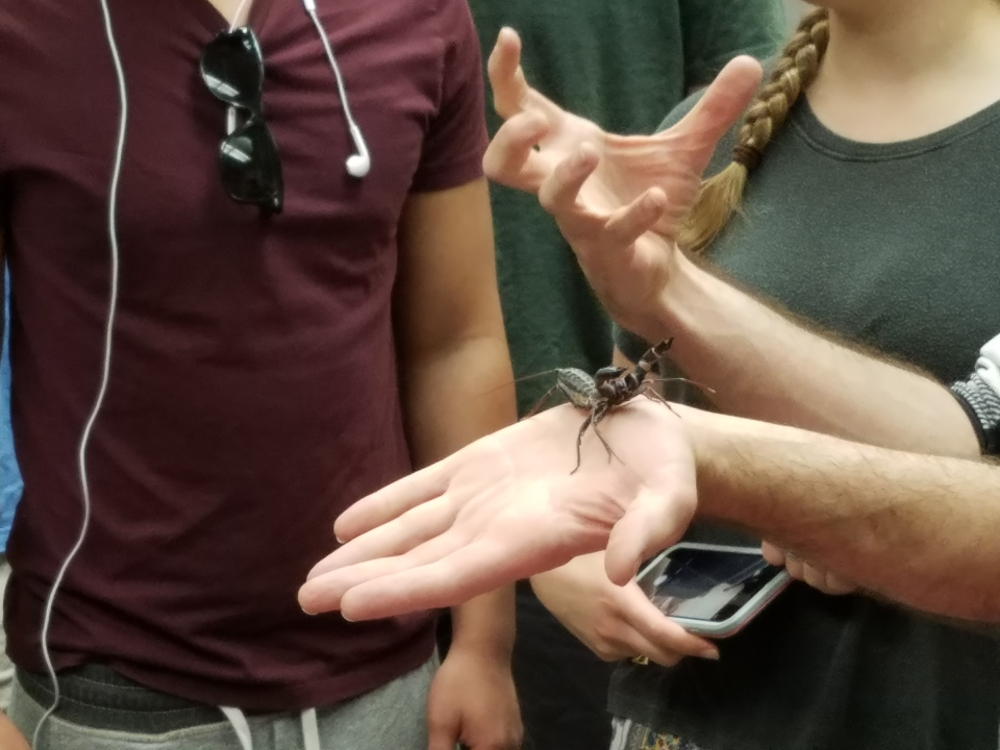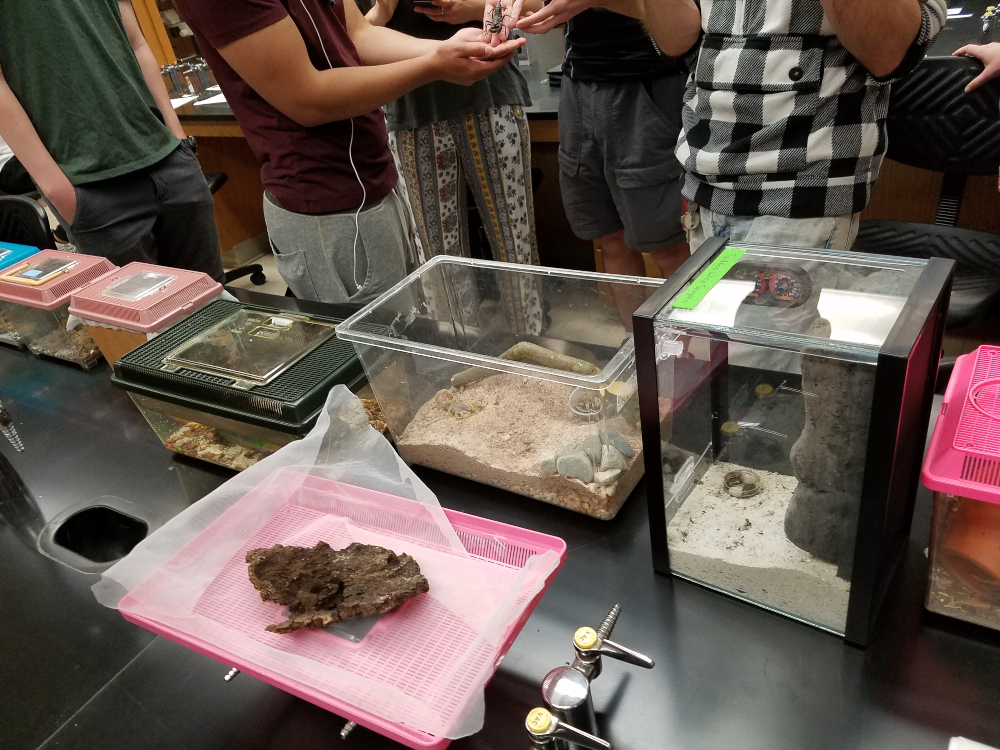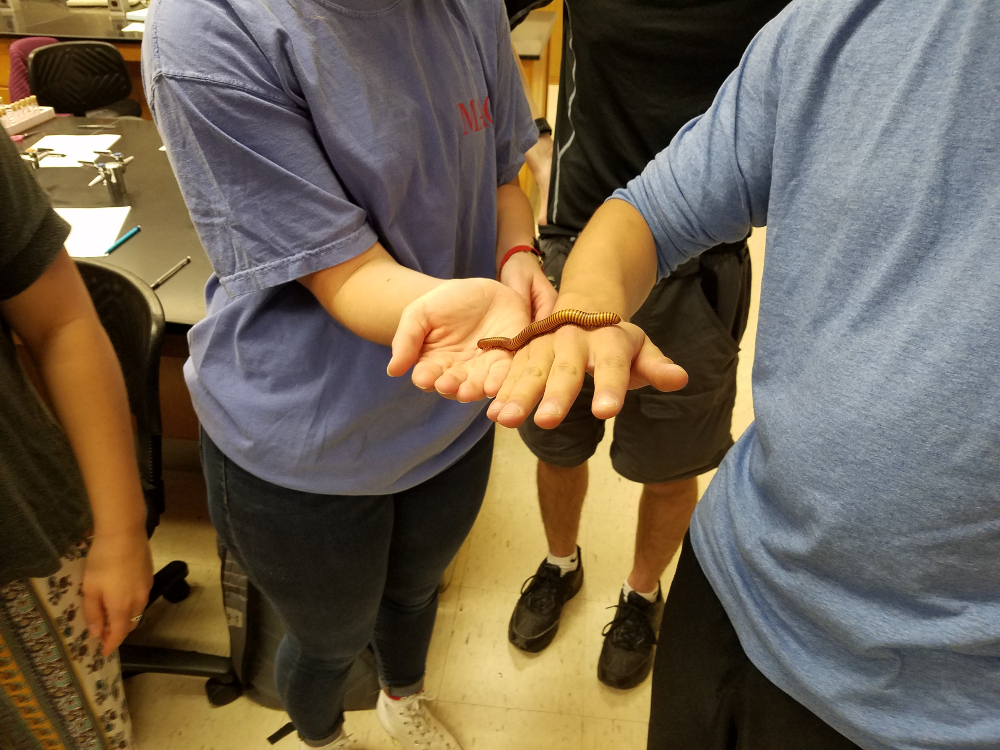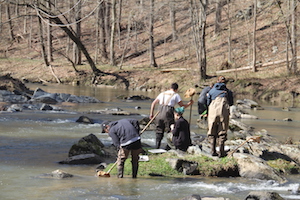As a teaching assistant at the University of Maryland, during Spring 2018, I taught Honors Seminar Insect Biodiversity: The Good, the Bad, and the Weird for non-majors. This course included lectures, wet labs, seminars, and field trips. I also taught a guest lecture on ecology of invasive species.
My students learned and practiced in aquatic insect collection, microscopy, identifying major insect groups and linking insect species to their ecological functions. The students also developed and presented “insect portraits” (fact sheets of good, bad, or weird insects), and actively participated in guided in-class and online discussions on pollination, plant-insect coevolution, and conservation issues.



Also, various arthropods from our departmental insect petting zoo occasionally visited us in class.
WEEK 1. INSECTS GOOD, BAD, AND WEIRD
WEEK 2. LIFE HISTORY OF EARTH
WEEK 3. ALL THE INSECTS ARE MERELY PLAYERS
WEEK 4. LIFE BENEATH FLOWING WATERS
WEEK 5. SCIENCE IS A VERB
WEEK 6. BENEFICIAL INSECTS
WEEK 7. ECOLOGICAL RESTORATION: MEANS TO AN END
WEEK 8. COLONY COLLAPSE DISORDER: A SIGN FOR THE FUTURE?
WEEK 9. SCIENCE COMMUNICATION ON BIODIVERSITY
WEEK 10. HUMANS CREATE PESTS HUMANS CAN SOLVE PEST PROBLEMS
WEEK 11. INTEGRATED PEST MANAGEMENT
WEEK 12. SHOULD WE STOP GENETIC ENGINEERING?
WEEK 13. STRANGE DISCOVERIES, NATURAL SELECTION?
WEEK 14. ONE PLANET, NO BOUNDARIES
WEEK 15. THE FUTURE OF INSECT LIFE IS OUR FUTURE
